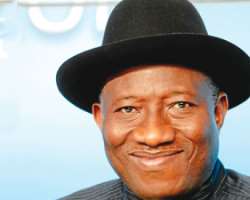Time to revitalise railways – Punch

IN signing a new N650 million supply and training deal with a Chinese company, the Nigerian Railway Corporation believes it is making significant progress. The 20 pressurised tank wagons it expects from the transaction should, it says, enhance its haulage services for oil marketers and improve its precarious financial standing. While the loss-making state monopoly enthuses over this Lilliputian stride, however, the reality is that our rail system is backward and grossly inadequate in today's globalised era.
The refusal of the Nigerian government to make the right choices and focus on winning strategies for development continues to baffle the world. Since the late 1980s, the Technical Committee on Privatisation and Commercialisation, forerunner of today's Bureau of Public Enterprises, had designed a master plan for the radical reform of the rail sector. Its programme called for the privatisation of some, and concessioning of other assets of the moribund NRC. Held up by the then ruling military junta, it was ramped up under a rejuvenated BPE, which rolled out an even more radical reform plan to liberalise the sector and open it wide to local and foreign investment.
Instead, successive governments since the inauguration of the Fourth Republic in 1999, have subverted the liberalisation plan, poured more public funds into the NRC and have gone furiously borrowing to prop up the sickly state monopoly. Curiously, all the spending plans and borrowing have launched largely onto a single highway leading to China and mainly, its China Civil Engineering and Construction Company.
The N650 million agreement between NRC and Shanhaiguan Bridge Group consolidates the Chinese influence on our rail sector. Adeseyi Sijuade, Managing Director of NRC, said the tank wagons, spare parts as well as the training provided for in the new agreement, would improve its ability to haul petroleum products, ease traffic congestion on the major highways between Lagos and Kano and raise the company's revenue. '…We will invariably be taking out about 30 oil tankers per trip off our roads,' he added. This is otherwise commendable. The volume of heavy duty vehicular traffic on our grossly inadequate and dilapidated highways is too high. This has caused further degradation of our roads; accidents are rife with attendant loss of lives, limbs and man hours, causing gridlocks and discouraging travel. The impact on business costs has been prohibitive. The over-reliance on roads for petroleum products haulage is inefficient, costly and often risky. The solution lies primarily in the provision of an efficient rail system, which is cheaper, more durable and better able to move goods across long distances.
What Sijuade did not say, however, is that a train journey between Lagos and Kano may take three-four days or more, thereby erasing some of the advantages of rail haulage. Moreover, the volume of goods the NRC is able to lift compared to demand is grossly inadequate. The world has moved further than this.
What is required is immediate liberalisation of the sector to allow massive private sector investment while the government restricts itself largely to regulation and policy. It is baffling that then Vice-President Goodluck Jonathan, who as chairman of the National Council on Privatisation, in 2009, presented a raft of bills to reform and liberalise the railways in line with the BPE master plan to the Federal Executive Council, has not deemed it fit to fast-track the reforms now that he is President. The plan to spend another N1.6 trillion on the existing railways between 2013 and 2015 is wrong-headed. The government should be pulling out of the NRC through privatisation and concessions of its vast assets, rather than further entrenching the state in rail operations. Before the latest rash of contracts, no new rail line had been built since the 640 kilometre Kano-Maiduguri line was completed in 1964. The NRC has been running at a loss for decades, often enmeshed in corruption and inefficiency, while successive governments have used it for patronage and as another conduit to siphon state funds.
The government should demonstrate its sincerity by dusting up the bills to restructure the sector and repeal the 1955 Railways Act that grants monopoly to the NRC. The laws will create a railway regulator, facilitate private sector participation and properly channel government investment into manpower development, support infrastructure and testing, while opening the floodgates to local and foreign investment. Nigeria has the required enormous natural resources, terrain and population to attract investment in railways that could shortly raise the current rail tracks of 3,770 kilometres.
The absence of the policy framework frustrated a proposal by a Canadian firm to build a high speed Lagos-Abuja rail link; a Lagos-Ibadan link proposed by Odu'a Investment Limited, and yet another rail investment plan by the Dangote Group. It is retrogressive to continue solely with this NRC/Chinese monopoly. Reforms in Brazil have fostered public and private firms competing for goods and passengers over its 29,295km of tracks. India, with its 64,460km of tracks is the world's largest rail jurisdiction, while South Africa, with its over 20,000km of tracks, has the most highly developed rail system in Africa. These are all members of BRICS, the group of five high-performing emerging economies that Nigeria forlornly hopes to join.
Jonathan and his economic team need only to bring up the BPE plan, design an implementation blueprint and scrupulously execute it. Only massive private investment can make a lasting impact and transform the rail sector, not piecemeal spending on the moribund state monopoly.
